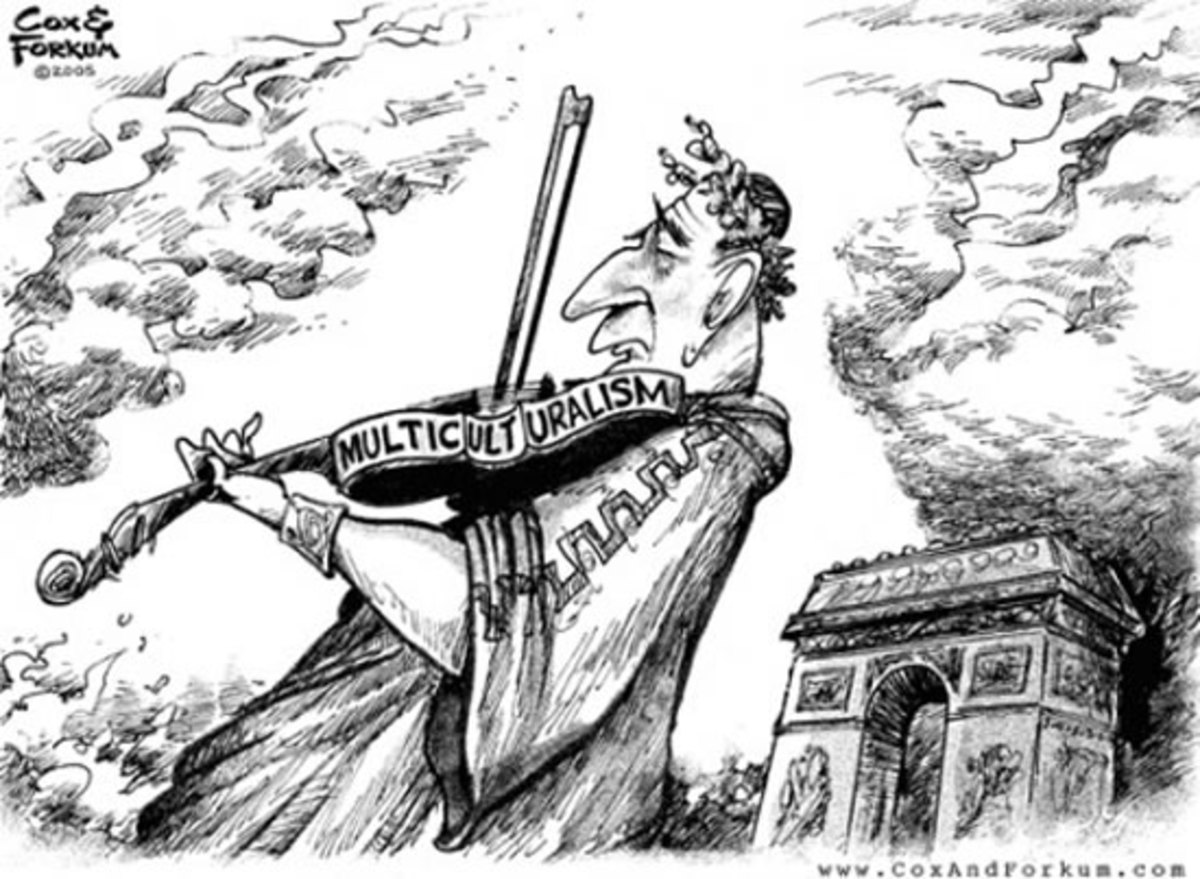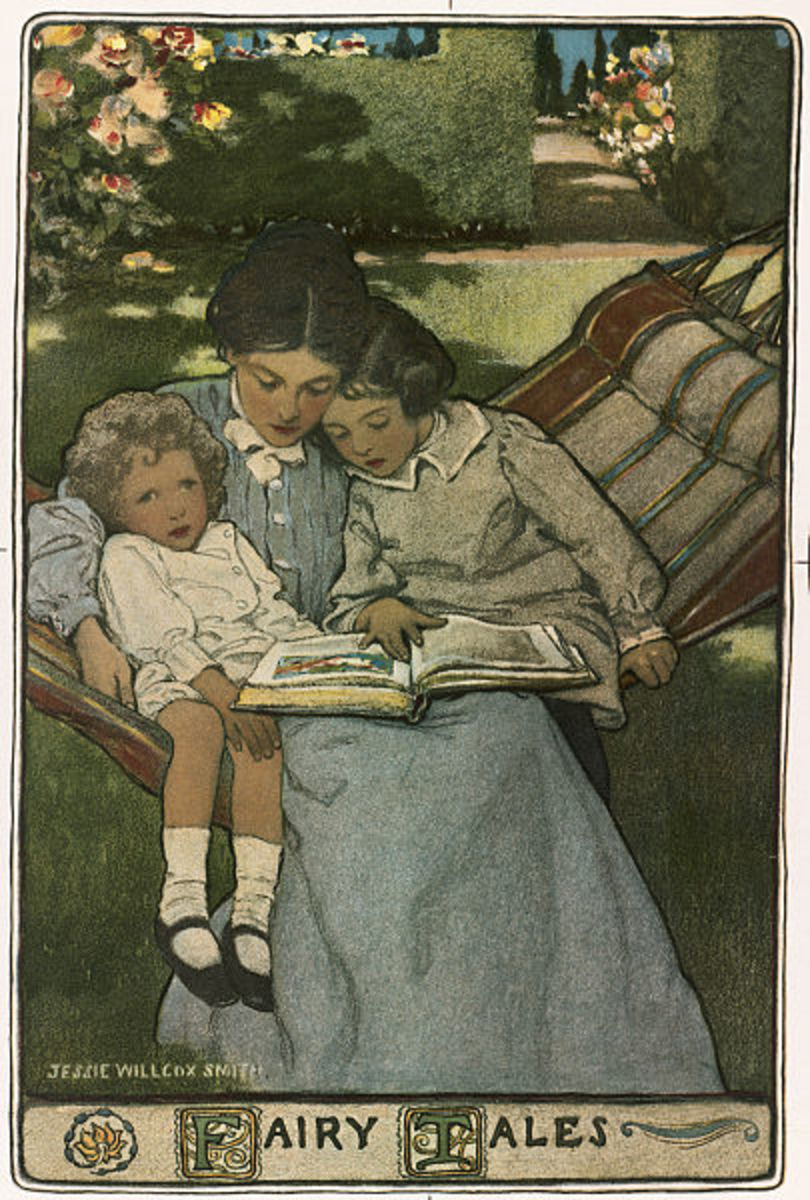Hippies: The Failed Counter-Culture Experiment
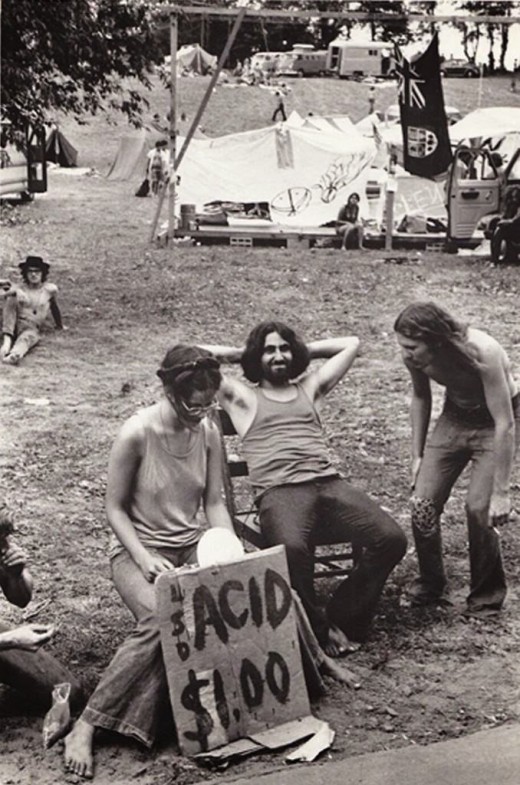
Origins of American Hippies
They say if you remember the Sixties, you weren’t there; the presumption being that you had to be on drugs at the time and are now incapable of memory. The Hippie movement consisted of only a segment of society, and there were many observers of that generation on the sidelines; those who were too wise, too young or too old. Hippies began small experiments with Communist principles and proved for themselves what everyone else already realized - you have to be on drugs for this particular societal structure to work.
The Hippie subculture probably began in California, and can be said to be a natural offshoot of the Beat Generation. Hippies generally started in the Haight/Ashbury crossroads of San Francisco, a low rent district with the large Golden Gate park nearby. Smoking marijuana was a big contingent of the Hippy’s day and fueled many of the Utopian values that spawned from their intoxicated minds.
In many ways it was a spiritual movement. Free love. Free food. Be at one with your soul and the universe. Stop exploiting the planet for material gain. The Free Store gave away recycled goods to Hippies moving into Haight/Ashbury. The summer of ’67 proved to be the peak for that city and from there the movement spread around the country as the media covered the new philosophy in quick, derisive sound bites. That derision wasn’t seen as such by a young generation not guided by religious principles but seeking a new philosophical outlook.
Those sound bites, meant to ridicule Hippies and their questioning ideology, in fact helped to propagate the philosophy. It was seen as an exposé to a new, less violent, more appealing society. Young people just entering adulthood asked themselves why they should be pawns of the enormous military/industrial complex embarked on yet another bloody conquest for democracy (read capitalism) in Vietnam, responsible for killing 100 Americans per week, and injuring many more. The Hippie mantra was ‘Make love not war’ and their symbol was the Peace sign. A Hippie would flash you two fingers in the shape of a V and say ‘Peace, man’ upon meeting you or bidding you farewell.
Why shouldn’t we end war, poverty, hunger? Why should we slave day-in, day-out to pay for houses, cars, and a lifestyle of useless consumption? Why can’t love (sex) be free and unencumbered by commitments? Why shouldn’t we consume drugs and expand our conscience? What has Jesus done for me lately, asked many, refusing to fight in the war, to get jobs, to marry, even some to wash or wear clothes. The youngsters asking these questions failed to examine them deeply and provide answers. The Establishment media treated the questions as unworthy of examination, and condescended to the young, merely applying shaming and ridiculing techniques in reply. The media portrayed the Hippie movement as one would portray a new species of monkeys in the zoo, finding their strange behavior amusing. Tour buses cruised the Haight/Ashbury district, establishment tourists gawking in wonder at the paisley-clad bell-bottom wearers with shoulder-length hair.
To the Establishment, to be a Hippie was to be a societal drop-out. It was to refute and deny religion. Hippies were drug users and not in their right minds. They were dressed like ragamuffins and filthy, often shoeless, braless and penniless. They had sex with each other without commitment and shared women or men partners freely. They burned their draft cards and refused to fight for the American way of life, seen as a betrayal of their country. They refused to work and demanded free food. The more the mainstream media took exception to these strange behaviors and portrayed them on television, the more they spread to the American youth, addicted to getting their viewpoints from broadcast media. It’s safe to say that Hippie culture might not have spread outside San Francisco without television. Not merely coincidental then that Hippies and the golden age of television, coupled with the rampant spread of available drugs sparked a bizarre counter-culture revolution that most Baby-Boomers witnessed or participated in.
The philosophy soon morphed into a form of communism, a taboo word that was never used to describe it except in the way they chose to live. Hippies who were devoted to the vague ideals spawned by their LSD and marijuana induced spirituality moved from the overcrowded apartments of Haight/Ashbury to farms in the valley. The free garbanzo beans slopped out at the Hippie free-food centers, although the right spirit, lacked in the desired intensity.
Here’s the idea. As a group of like-minded spiritual individuals, we’ll share a homestead. Everyone contributes to growing vegetables and keeping the house and grounds maintained. You can sleep with whatever women you want and no matter who the fathers are, we’ll all take responsibility for the children. What’s mine is yours, and visa versa, including your stash of dope. Yoo toe pee yah, dude! Cowabunga!
Hippies developed their own language principally to determine a person’s sympathies to the movement. Bread was money. Crashing was to go to sleep. Straight was a non-follower, part of the Establishment. Pigs, or Fuzz were cops. Narcs were unsympathetic mainstreamers. Jesus boots were sandals. Crash Pad was your home. Crash evolved from what happens after your drugs wear off - you crashed. Long hair and beards were a must for males.
A typical Hippie conversation might go like this:
“Hey dude, cop that narc over there with the babe. What’s his bag, man?”
“He’s cool, bro. He makes bread with Afghan gold. I scored off him last week. But watch out man, there’s a burn happening with oregano.”
“Bummer. Some groovy tabs out there. Dropped some Orange. Not a bad trip, but I crashed for a week.”
English Translation:
“Hello friend (stranger usually). See that non-hippy over there with the girl. What is his occupation?”
“He’s sympathetic to our side, spiritual brother. He earns his money selling hashish of high quality. I bought some last week. But be careful, someone is selling oregano as marijuana.”
“Too bad. Some great LSD out there. I ingested some tablets of LSD known as Orange. Not a bad drug experience but I slept for a week afterward.”
Of course, if you embarked on the second form of speech you’d have been identified as straight (non-hippie) and avoided as a narc, a social pariah.
Hippies were protesting what they felt was an unnecessary war.

Hippies were protesting the war in Vietnam, labeling it as unnecessary. The international peace sign was their logo, and they generally greeted others in their movement by presenting two fingers in the shape of a V, saying "Peace, man." The Hippie protests escalated with time and largely succeeded in bringing an end to the war, after which the movement lost its central focus.
The Failure
It didn’t take long with real life on a Hippie commune for problems in the model to emerge. Each individual’s work output varies and the hardworking would have to support the less hardworking, or non-working, just like Canadians do today. After all didn’t the Hippie guru say that work was not essential because we didn’t need to maintain a materialistic lifestyle? Everything would be fine, and no sexual rivalries for available females would take place as long as the drugs didn’t run out. Having one foot in, one foot out of general society meant that money was still a must. Cars didn’t make themselves. One cannot grow all one’s needs in a vegetable patch, and the young would have known or understood that if their time for development wasn’t spent consuming drugs and chanting Hari Krishna or Ohm. Sexual rivalries developed if females shared too freely or wouldn’t share freely enough. If a woman of the commune became pregnant, there couldn’t be enough drugs to smooth out differences that would arise, especially if a rather lazy participant in the work-sharing scheme was the father. A questioning adherent would ask themselves why they would have to work to support someone else’s sexual enjoyment, especially if he wasn’t getting some for himself.
It took a few years but the drug induced spiritual euphoria wore off. Each person develops at their own pace, so it was a gradual disillusionment. The more devoted to the cause would stick to it for years, teaching their offspring that the true path to enlightenment was to live off the land, to give up society, to eschew materialism. They would end up alone, in time their long hair thinning and becoming an embarrassment to the young of the mid-seventies. The rest of them would drift back to their homes, resume their higher educations, marry, get jobs, buy homes, and settle down.
The great Hippie experiment with communes fizzled out as fast as it took root. The reasons for its failure were obvious: it only worked in a drug-induced state of mind. Hippies had their own comics. One particular comic book explained the failure of the movement quite well. One fine day, the hippie brothers go out and buy a luxurious property while on drugs. The house is a mansion; the backyard has a gorgeous fishpond with an ornate wooden bridge spanning the pool, leading to a Japanese pagoda and lush, flowery gardens. They sign the papers and move in. When the drugs wear off they discover they’ve bought a weed-infested, ramshackle dump. The Japanese pagoda is actually an outhouse tilting in the wind. The fish pond is really a cesspool, steaming off foul vapors. Reality sets in and they don’t know what to do, except take more drugs.
The Iconic Camper Van
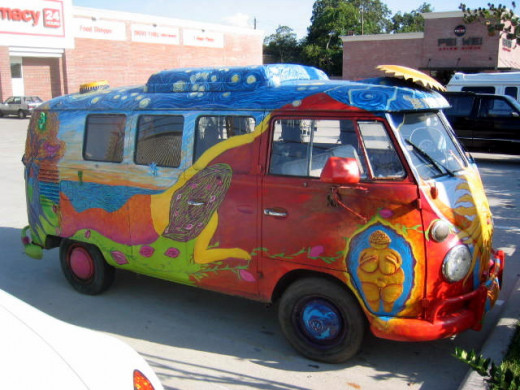
Unwittingly perhaps, that comic book explained succinctly the failure of the Hippie movement and its experiment with communist ideals. But why did the establishment fail to illustrate this, something so blatantly obvious? Human behavior intervenes. Denying it only leads to self-delusion and hypocrisy as most devoted Hippies were, and thank goodness we were spared a bloody revolution.
Most Hippies were adolescents. They had adolescent dreams and fears for the future. They were children spawned after a humanity-changing world war and were facing, with naive philosophy, the theoretical end of civilization during the flourishing Cold War and stock-piling of nuclear weapons. To coin a phrase, their reaction to an extremely grim reality was a total cop out, man.
Where are they now? If they’re still alive, Hippies would be in their mid-sixties to eighties today. Many were teenagers of fifteen and sixteen that summer of ’67, and others were in their mid-thirties, notably the gurus telling us to ‘Turn on, Tune in, Drop out.’ Ask your grandparents for pictures of the era to find out if they were among them.
To be sure, there were a few good things that emerged from this counter-culture revolution. Sensitivity to other cultures and other races, for one, a greater recognition of the environment, nature, animals, and the planet for another. Excellent music comes to mind too. But most of all Hippies proved that the best antidote for communism was to let people experience it for themselves; they’d soon learn the error of their ways, and the real, undeniable forces of human nature that make it unworkable.
Maybe American Hippies were protesting the poor wealth distribution of the system and realized that on balance, their own home-grown American model with all its blemishes works in their favor. But we’ll always have some of the greatest music of any generation in history. You can easily spot the albums, just look for the really gauche depictions of flowers and peace symbols on Volkswagen campers driven by bearded musicians in bell-bottom trousers.
Hippy Subculture - Mostly Adolescents
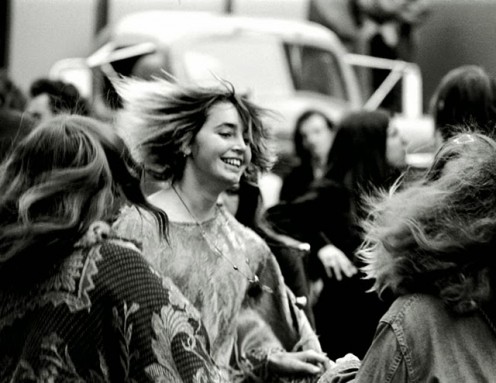
Hippy Lingo Quiz - Translate the following into English
view quiz statisticsLocale of The Summer of Love
Locale of The Summer of Love in San Francisco, 1967
Ed Schofield is a writer from Nova Scotia, Canada. His e-books can be found at Amazon.com.




